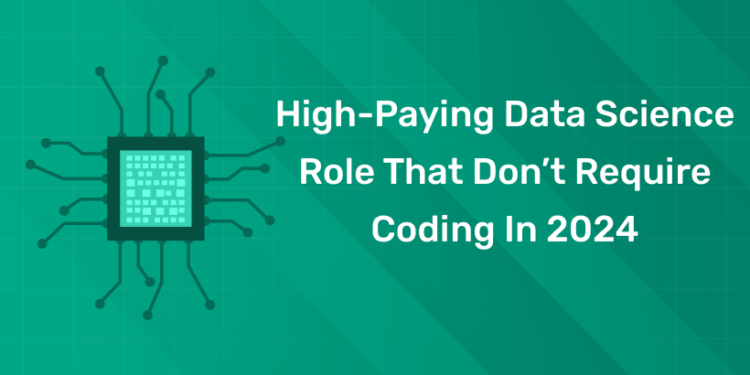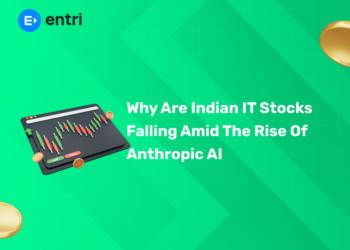Table of Contents
Becoming a data scientist without programming knowledge can be challenging, as programming is a fundamental skill in the field. However, there are some tools and platforms that offer user-friendly interfaces for data analysis, which may require minimal programming. Online courses can be a valuable resource for learning these tools and gaining an understanding of data science concepts. Look for courses that focus on data analysis using tools with user-friendly interfaces, and consider supplementing your learning with basic programming courses to enhance your skill set. Keep in mind that practical experience and real-world projects are also important for developing proficiency in data science.
In this blog, we’ll explore the top 10 non-coding jobs in data science that are in high demand this year. These no-code roles in data science offer huge salaries, remote working opportunities, and promising career growth.
Top 10 Non-Coding Jobs in Data Science
Let’s have a look at the Top 10 Non-Coding Jobs in Data Science in 2024 that are ever-evolving and in demand:
- Data Analyst: Decision-makers can be influenced by the way data analysts evaluate data and transform it into knowledge on how to enhance a firm.
- Business Analyst: By evaluating processes, identifying needs, and providing data-driven solutions, they close the gap between data science and business.
- Data Scientist (without heavy coding): Less coding could be needed for some data science positions in favor of increasing emphasis on statistical modeling, data analysis, and visualization.
- Data Engineer: Although they frequently write code, data engineers are more concerned with planning, constructing, and managing infrastructure and data pipelines than they are with creating intricate algorithms.
- Data Architect: Data architects create and oversee the organization and structure of data systems, making sure they are scalable and fit the demands of the company.
- Data Quality Manager: They keep an eye on an organization’s data quality to make sure information is correct, consistent, and trustworthy for analysis.
- Data Governance Analyst: To guarantee that data is maintained efficiently and securely throughout a business, data governance experts create and execute rules, processes, and standards.
- Data Visualization Specialist: These experts are skilled in presenting data in a visual way to stakeholders in order to effectively convey trends and insights.
- Data Product Manager: Data product managers collaborate closely with cross-functional teams to set needs and prioritize features, with an emphasis on delivering data-driven products and services.
- Data Science Consultant: Consultants assist firms in developing strategies, resolving issues, and putting into practice solutions that are specific to their needs by offering their knowledge and direction on data science initiatives.
What does a data scientist do?
1: Which of the following algorithms is most suitable for classification tasks?
Data scientists identify the questions that their team need to be posing and then work out how to use data to answer those questions. They frequently create forecasting and theory prediction models. On a daily basis, a data scientist may do the following tasks:
- Find patterns and trends in datasets to uncover insights
- Create algorithms and data models to forecast outcomes
- Use machine learning techniques to improve the quality of data or product offerings
- Communicate recommendations to other teams and senior staff
- Deploy data tools such as Python, R, SAS, or SQL in data analysis
- Stay on top of innovations in the data science field
🚀 Start Coding Today! Enroll Now with Easy EMI Options. 💳✨
Equip yourself with in-demand skills to land top-tier roles in the data-driven world.
Start Learning Now with EMI OptionsData scientist salary and job growth
A data scientist earns an average salary of $108,659 in the United States, according to Lightcast™.
Demand is high for data professionals—data scientists occupations are expected to grow by 36 percent in the next 10 years (much faster than average), according to the US Bureau of Labor Statistics (BLS).
The high demand has been linked to the rise of big data and its increasing importance to businesses and other organizations.
How To Land Data Science Roles In Top Industries
Education, skill building, networking, and astute career planning are all necessary to become a data scientist in a leading sector. Make a note of the following advice to succeed in the best data science sectors.
- developed a solid foundation in schooling
- Discover the Basics of Data Science. Make a Strong CV and Portfolio
- Get Practical Experience
- Establish Links and Build a Network
- Consider Pursuing Additional Education and Certifications
- Make use of judiciously
- Stay Up to Date on Industry Developments
Entri Elevate’s Data Science & Machine Learning Program
- Designed for individuals in search of proficiency in machine learning and data science.
- Comprehensive Training: Designed with practical exercises and projects by industry specialists. Use in the Real World
- Acquire the ability to use knowledge in real-world situations.
- Acquire mastery in the creation and application of machine-learning models.
- Have a firm grasp of data science principles to prepare you for a variety of professions.
The data science industry is changing in 2024 and the next years, and non-coding people will have more chances in this discipline.Startups and IT firms are actively looking for someone who can assist them in leveraging data without having to write code.
There are non-coding professions in data science waiting for you, regardless of your passions: managing data-driven products, data visualization, or ethics in data. These Non-Coding Jobs in Data Science are expected to become increasingly more crucial to the success of the sector as the field grows.
🚀 Start Coding Today! Enroll Now with Easy EMI Options. 💳✨
Equip yourself with in-demand skills to land top-tier roles in the data-driven world.
Start Learning Now with EMI OptionsFrequently Asked Questions
Q1. What are the top Non-Coding Jobs in Data Science?
Ans. Some top non-coding data science job roles include Data Analyst, Data Visualization Specialist, Business Analyst, and Machine Learning Engineer.
Q2. What is the average salary range for non-coding jobs in data science?
Ans. Average salaries for non-coding jobs in data science in India can vary but typically range from ₹4,50,000 to ₹9,00,000 per year, depending on factors like experience and location.
Q3. What tools and software should a non-coding data science professional be familiar with?
Ans. Proficiency in tools like Excel, Tableau, Power BI, and data visualization software is essential for non-coding data science professionals in India.
Q4. How do non-coding data science roles contribute to the overall goals of a company?
Ans. Non-coding data science professionals help organizations make data-informed decisions, optimize processes, and improve business strategies using data analysis and visualization.













